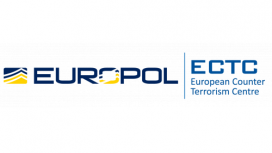International Cyber Conflicts
By nature, cyber conflicts are an international issue that span across nation-state borders. By the end of the course, you will be able to apply the knowledge gained for analysis and management of international cyber incidents and conflicts including for activities such as development of policy related to cybercrime and cyberwarfare. Management of cyber incidents and conflicts requires an interdisciplinary perspective including an understanding of: 1) characteristics of the cyber threats and conflicts themselves, 2) international efforts to reduce and improve cyber security, and 3) psychological and sociopolitical factors.
The course is designed to reach an international audience and will encourage discussion on relevant current events among participants to enrich the experience with various personal and cultural perspectives on cutting-edge issues. In addition, assignments and other assessments will supplement video lectures and selected readings to ensure application of the material.
Grading:
Your grade is assessed based on discussion posts and quizzes. Individual taking this course for credit (i.e. students at the University at Albany y will be required to engage in additional activities communicated to them directly).
ACKNOWLEDGEMENTS
Ersin Dincelli and Nic DePaula were the instructional designers for the course who assisted in the recording of the videos, reviewing material, creating slides, assessments and some of the content. Without their tremendous effort this would not have been possible. We also acknowledge the financial support for the recordings from the University at Albany as well as the support from Media and Marketing. Finally, thanks to Lisa Stephens who is the SUNY liaison to Coursera for being a strong supporter of the MOOC.
After taking this course you will be able to:
• Identify different types of actors involved in cyber threats (individuals, organizations & nation-states)
• Distinguish between different types of threats and issues in cyber security including, data theft, political espionage, critical infrastructure protection, and propaganda
• Detail the basic characteristics of the Internet infrastructure and international efforts to address Internet governance
• List several international efforts to address cyber crime and espionage
• Evaluate how principals that govern international conflicts might be applied in context of cyber security
• Apply different psychological theories of human motivation and cooperation and communication and political theories in analysis of different international issues related to cyber security including censorship, media operations and role of social technologies.
No background knowledge or skills are necessary, but an understanding and familiarity of cyber security, Internet infrastructure and international law would be advantageous for anyone who participates in the course.
Location
To apply for the course, please click on the button. Apply now
| Topics | |
| Languages | English |
| Evaluation | Quizzes |
| Target Audience | |
| Methods | |
| No of Participants | 25 |
| Accreditation | |
| Certificate |
If you have any questions about this course, please get in touch.
In order to send a message, please click on this button. Get in contact

